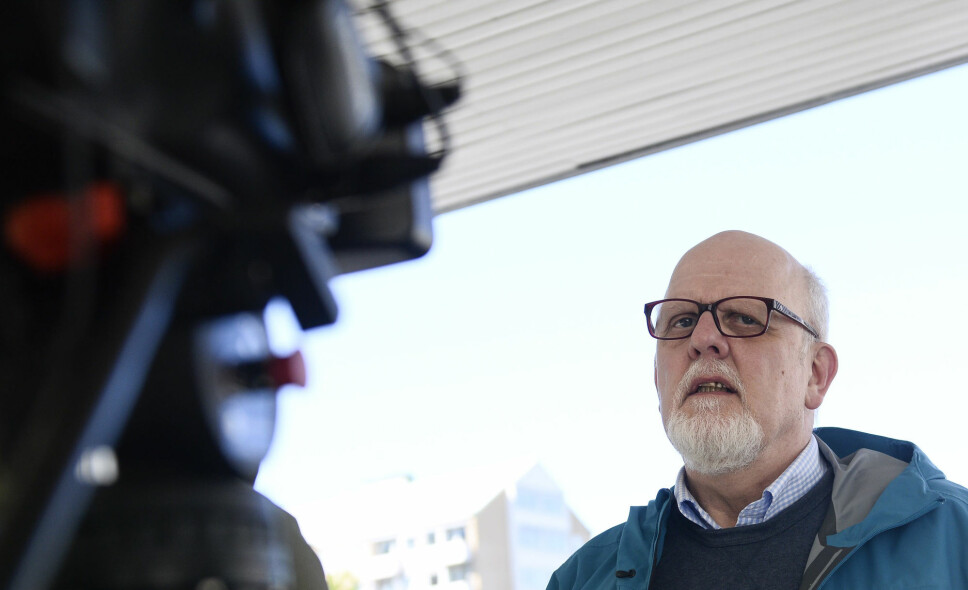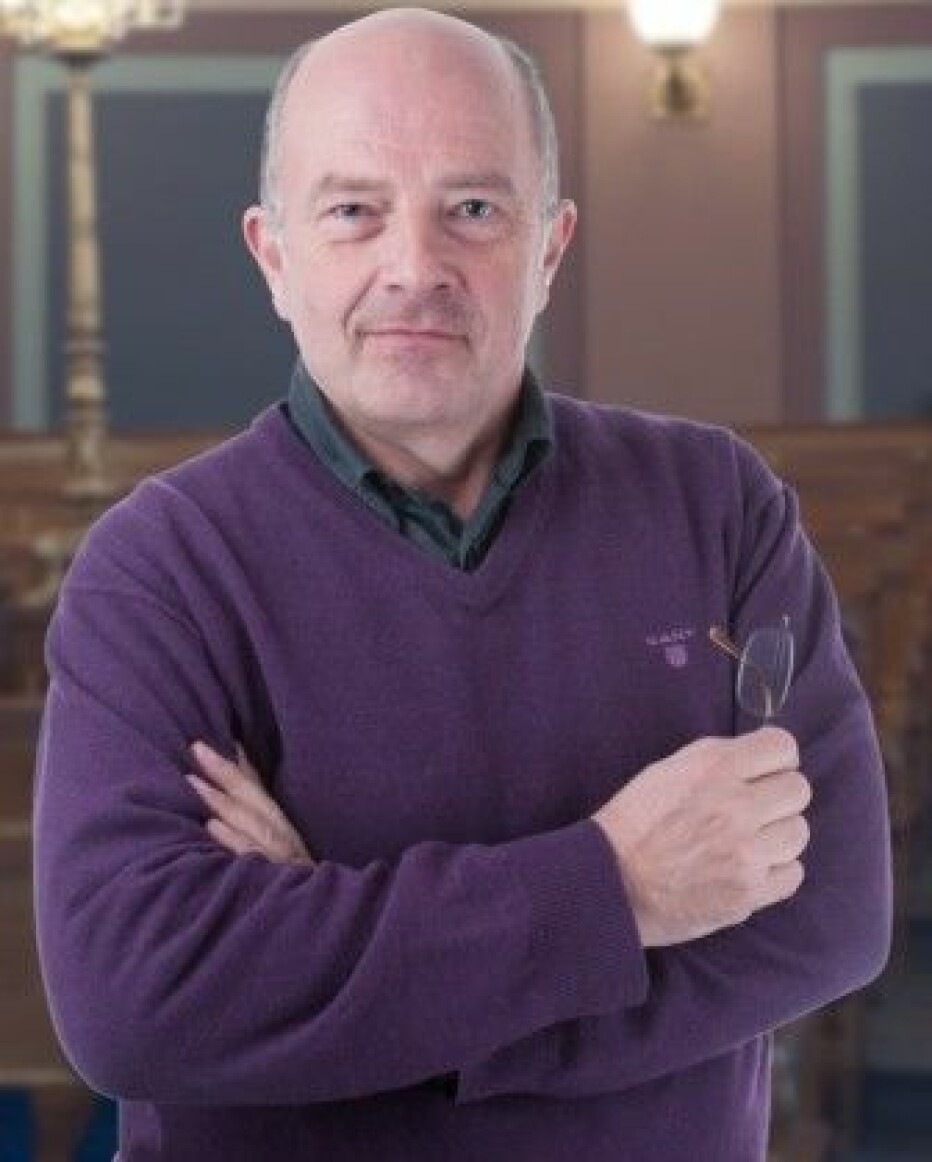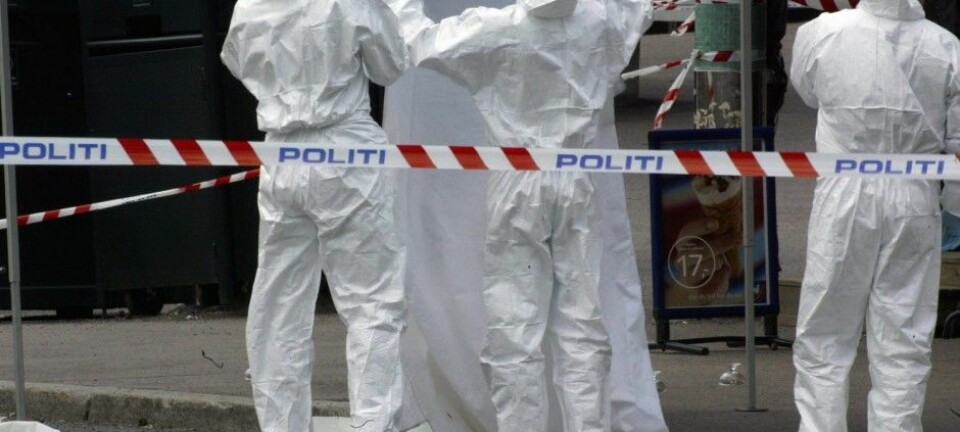
Why do some people confess to crimes they haven’t committed?
Researchers believe we should still be aware of this danger, even though police now use more modern interrogation techniques.
Confessions have long been considered the gold standard for evidence in criminal cases.
But we know that some people make false confessions – and can be convicted because of them. How many people have been wrongly convicted isn’t known.
"There’s no doubt that a genuine confession is effective evidence," said interrogation expert and researcher Asbjørn Rachlew at a recent event on false confessions at the National Library of Norway.
Everything solved – or is it?
When a murder has been committed, for example, a confession gives the bereaved parties an answer.
Everything seems to be resolved.
But although a confession is important, it should never be enough. Rachlew's research has shown that a confession also needs to be tested by the police.
His research has now led to significant changes in the field in Norway.
More research-based police questioning
Rachlew already had a lot of experience from difficult murder investigations in the police force when he embarked on his doctorate on interrogation.
His research has resulted in the police using more scientifically based interrogation methods.
The UN wants to see these methods become a standard for police questioning around the world.

Dreamt he was a killer
Rachlew based his doctorate on the case against murder suspect Stein Inge Johannessen.
He was jailed for six months in solitary confinement – for a murder committed by someone else. When four months had passed, Johannessen began to dream that he was the murderer.
He called his defender and said he would confess.
“Fortunately, Johannessen had a defender who was able to talk him out of doing that. And when the trial was about to start, the real killer came forward,” Rachlew said.
Learned how to manipulate
When Rachlew started as a police investigator in the 1990s, he was trained in a tradition where the purpose of questioning was to get the suspect to confess.
“We were trained to believe that the perpetrator was sitting in front of us – and that we shouldn’t lose faith in that,” he said.
Rachlew quickly learned manipulative tricks to get the person to confess.
One of the tricks was to portray himself as the suspect's best friend.
“One method was to take the person out of custody just before a meal was served, so that I could serve him. In this way, the police officer showed that he or she cared. But the care had a manipulative purpose."
All this happened while a suspect was in full isolation.
Tricks for getting murder confessions
Another effective trick was to tell the suspect that he had repressed the crime, because it was such a traumatic act.
This trick was used in the Norwegian cold case of Birgitte Tengs against her cousin, Rachlew says.
After several weeks in isolation rooms with investigators, the cousin confessed to a murder he could not remember – and for which he was later acquitted.
The English forensic psychologist Gisli Gudjonsson later came up with a crushing criticism of the Norwegian police for the interrogation methods used in this case.
“Gudjonsson referred to scientific studies on the danger of false confessions, which we’d never heard of in Norway at that time,” says Rachlew.
Challenged the methods
The United Kingdom had already challenged these interrogation methods.
Rachlew was paid by Police Chief Ingelin Killengren to research investigative police interviewing in the United Kingdom. His research ended with a doctorate at the University of Oslo (UiO) in 2009.
His dissertation was called Justisfeil ved politiets etterforskning [Justice errors in police investigating]. Rachlew directed an unusually critical look at a practice that has been common in the police force up to the turn of the millennium and which still is the norm most other places in the world.
The research resulted in Norway being the second country in the world to challenge traditional interrogation methods after the United Kingdom.
Everything should be captured on video
Today, it is important that human rights are conveyed from the start of the interrogation and that all questioning is recorded on video. The interrogation methods should take into account that the suspect is in a vulnerable situation, Rachlew says.
Several other countries have since followed suit. But most countries have not abandoned the idea that the purpose of questioning is to get the accused to confess, says Rachlew, who currently works as a police officer in the Oslo police district and is a visiting scientist at the Norwegian Centre for Human Rights at the University of Oslo.
Several reasons for false confessions
Why would someone make a false confession that could lead to conviction for a crime they did not commit?
We need to understand that people can have a lot of different reasons for giving a false confession, says Ulf Stridbeck. He is professor emeritus at the Department of Public and International Law at the University of Oslo.
Stridbeck has done research on witness psychology in the USA, focusing on false confessions. He was also one of Rachlew's dissertation supervisors.

The Thomas Quick case
Stridbeck recently published a research article on the Swedish Thomas Quick case.
Quick, whose actual name is Sture Bergwall, confessed to over 30 murders he supposedly committed from 1992 to 2000. He was convicted of eight of the murders he admitted to, including three in Norway: the murders of Trine Jensen in 1981 and of Gry Storvik in 1985, both in Oppegård municipality, and of Therese Johannesen from Drammen municipality in 1988.
Quick became an interesting person for psychotherapists, investigators and journalists when he confessed to all these killings. This is how he made himself the centre of events. He received a lot of attention which he may have been missing for a long time. And he gained practically unrestricted access to addictive narcotics medications.
So how voluntary were these confessions?
System failure in the United States
The Innocence Project in the United States, using DNA evidence, has estimated that about 25 per cent of all convictions have been based on false confessions.
Stridbeck points out a system error in the US legal system.
“The problem in the US is that the questioning techniques and the police and investigators are manipulative. You can negotiate a milder penalty if you confess, like getting 20 years in prison instead of life,” he says.
No research is available about the magnitude of this problem in Norway.
“We have cases in Norway too, although there probably aren’t that many,” says Stridbeck.
The Fritz Moen case is an example of that. He served more than 18 years in prison for two murders. The severely disabled man was eventually found to be innocent.
- Read more about the Moen-case: Risk for more convictions of the innocent
Some individuals more prone to false confessions
Studies have shown that some people are particularly prone to giving false confessions, says Stridbeck.
“Usually people with a low IQ or who are mentally ill make false confessions,” he says.
“But we have many types of people who confess voluntarily. Today we know that even normal people, under certain conditions, will confess to something they haven’t done.”
The witness psychology researcher points out that 130 people have now confessed to killing Swedish Prime Minister Olof Palme in 1986. None of these individuals have been charged or convicted. It’s likely that all of them don’t have a low IQ, according to Stridbeck.
“In criminal gangs it’s probably seen as a feather in your cap to have on your CV that you’ve taken responsibility for a crime that someone else higher up in the hierarchy has committed. Sometimes a spouse takes the blame for a partner. Or a suspect may feel so pressured by someone in authority that he or she doubts their own memory."
Confessions worth less
Stridbeck believes that an isolated confession is no longer worth as much as it used to be.
Now a confession has to be substantiated by technical evidence and by witnesses before anyone can be convicted. It is the prosecutor's job to prove it all.
“Whereas the focus used to be on getting a confession in an interrogation, now the focus is on getting as much information as possible from the suspects. This required a paradigm shift, in which researchers like Rachlew and Ivar Fashing have played a major role,” says Stridbeck.
Traumatic memories not repressed
Both Thomas Quick and Birgitte Teng's cousin were told by police that they had repressed their memories of the murders they supposedly committed.
“It may be that an incident took place when the person was intoxicated or psychotic and therefore it wasn’t programmed into your head. But doing something horrific and then forgetting about it hasn’t been documented in reality,” Stridbeck says.
Today, researchers know that people do not repress traumatic events.
“They are too well embedded in a person to vanish from memory,” says Stridbeck.
Translated by Ingrid P. Nuse
———
Read the Norwegian version of this article at forskning.no
































